 Sign in
Sign in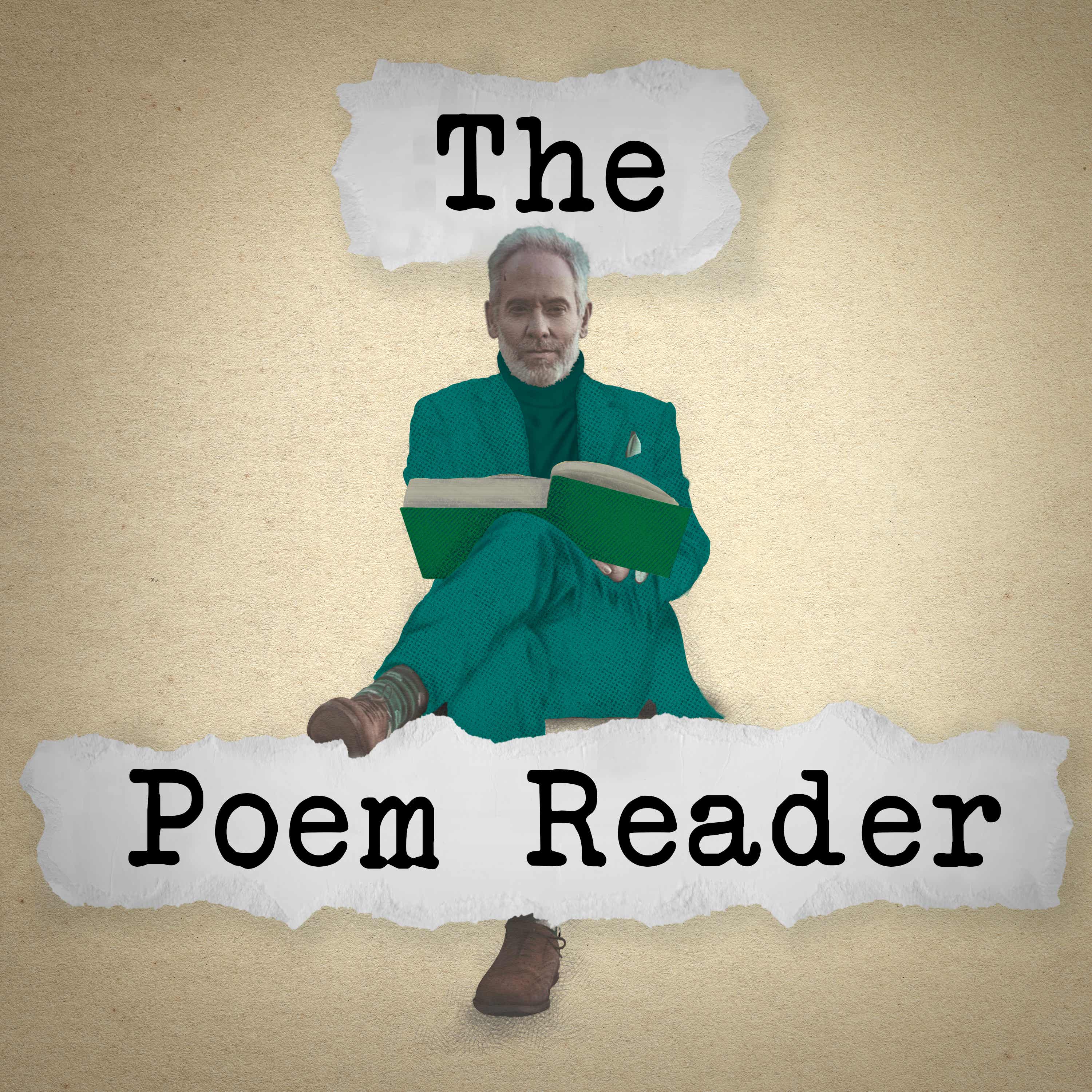
Arts
Dominic Frisby
For lovers of language. Every week a new poem read aloud. www.thepoemreader.com
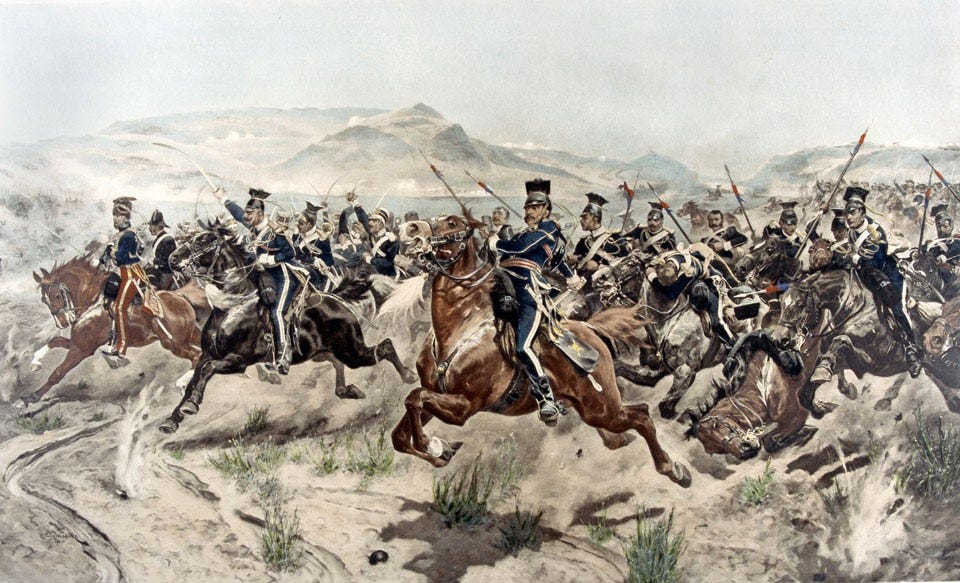
The Charge of the Light Brigade
IHalf a league, half a league,Half a league onward,All in the valley of Death Rode the six hundred.“Forward, the Light Brigade!Charge for the guns!” he said.Into the valley of Death Rode the six hundred.II“Forward, the Light Brigade!”Was there a man dismayed? Not though the soldier knew Someone had blundered. Theirs not to make reply, Theirs not to reason why, Theirs but to do and die. Into the valley of Death Rode the six hundred.IIICannon to right of them,Cannon to left of them,Cannon in front of them Volleyed and thundered;Stormed at with shot and shell,Boldly they rode and well,Into the jaws of Death,Into the mouth of hell Rode the six hundred.IVFlashed all their sabres bare,Flashed as they turned in airSabring the gunners there,Charging an army, while All the world wondered.Plunged in the battery-smokeRight through the line they broke;Cossack and RussianReeled from the sabre stroke Shattered and sundered.Then they rode back, but not Not the six hundred.VCannon to right of them,Cannon to left of them,Cannon behind them Volleyed and thundered;Stormed at with shot and shell,While horse and hero fell.They that had fought so wellCame through the jaws of Death,Back from the mouth of hell,All that was left of them, Left of six hundred.VIWhen can their glory fade?O the wild charge they made! All the world wondered.Honour the charge they made!Honour the Light Brigade, Noble six hundred! This is a public episode. If you would like to discuss this with other subscribers or get access to bonus episodes, visit www.thepoemreader.com
02:0716/07/2022
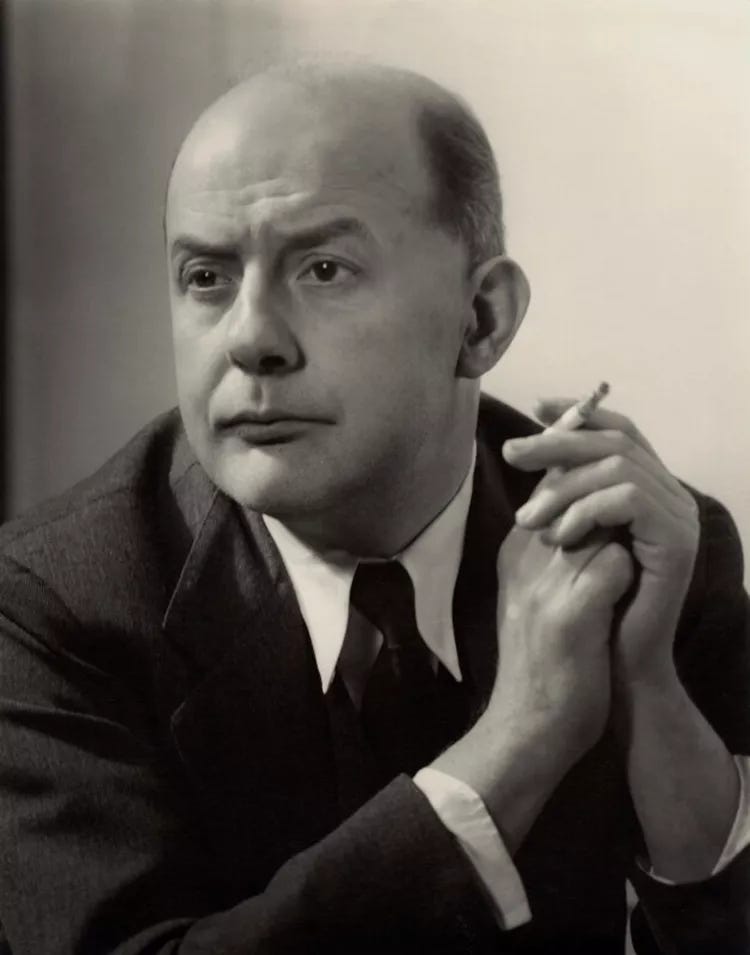
A Subaltern's Love Song
Miss J. Hunter Dunn, Miss J. Hunter Dunn,Furnish'd and burnish'd by Aldershot sun,What strenuous singles we played after tea,We in the tournament - you against me!Love-thirty, love-forty, oh! weakness of joy,The speed of a swallow, the grace of a boy,With carefullest carelessness, gaily you won,I am weak from your loveliness, Joan Hunter Dunn.Miss Joan Hunter Dunn, Miss Joan Hunter Dunn,How mad I am, sad I am, glad that you won,The warm-handled racket is back in its press,But my shock-headed victor, she loves me no less.Her father's euonymus shines as we walk,And swing past the summer-house, buried in talk,And cool the verandah that welcomes us inTo the six-o'clock news and a lime-juice and gin.The scent of the conifers, sound of the bath,The view from my bedroom of moss-dappled path,As I struggle with double-end evening tie,For we dance at the Golf Club, my victor and I.On the floor of her bedroom lie blazer and shorts,And the cream-coloured walls are be-trophied with sports,And westering, questioning settles the sun,On your low-leaded window, Miss Joan Hunter Dunn.The Hillman is waiting, the light's in the hall,The pictures of Egypt are bright on the wall,My sweet, I am standing beside the oak stairAnd there on the landing's the light on your hair.By roads "not adopted", by woodlanded ways,She drove to the club in the late summer haze,Into nine-o'clock Camberley, heavy with bellsAnd mushroomy, pine-woody, evergreen smells.Miss Joan Hunter Dunn, Miss Joan Hunter Dunn,I can hear from the car park the dance has begun,Oh! Surrey twilight! importunate band!Oh! strongly adorable tennis-girl's hand!Around us are Rovers and Austins afar,Above us the intimate roof of the car,And here on my right is the girl of my choice,With the tilt of her nose and the chime of her voice.And the scent of her wrap, and the words never said,And the ominous, ominous dancing ahead.We sat in the car park till twenty to oneAnd now I'm engaged to Miss Joan Hunter Dunn. This is a public episode. If you would like to discuss this with other subscribers or get access to bonus episodes, visit www.thepoemreader.com
02:5509/07/2022
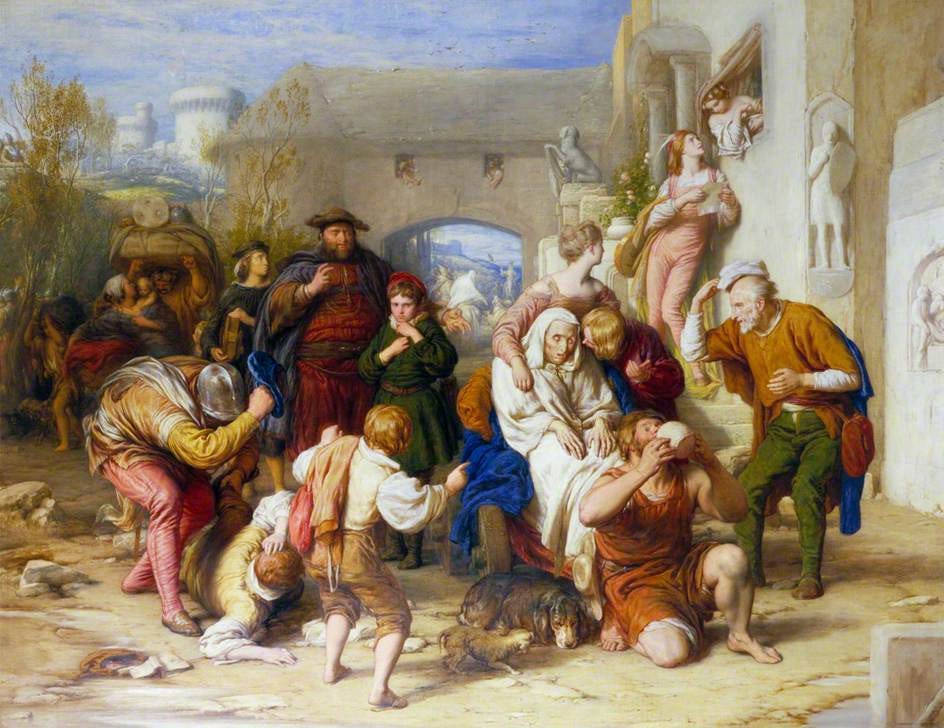
The Seven Ages of Man
All the world's a stage,And all the men and women merely players:They have their exits and their entrances;And one man in his time plays many parts,His acts being seven ages. At first the infant,Mewling and puking in the nurse's arms.And then the whining schoolboy, with his satchel,And shining morning face, creeping like snailUnwillingly to school. And then the lover,Sighing like furnace, with a woeful balladMade to his mistress' eyebrow. Then a soldier,Full of strange oaths, and bearded like the pard,Jealous in honor, sudden and quick in quarrel,Seeking the bubble reputationEven in the cannon's mouth. And then the justice,In fair round belly with good capon lined,With eyes severe and beard of formal cut,Full of wise saws and modern instances;And so he plays his part. The sixth age shiftsInto the lean and slippered pantaloon,With spectacles on nose and pouch on side,His youthful hose well saved, a world too wideFor his shrunk shank; and his big manly voice,Turning again toward childish treble, pipes And whistles in his sound. Last scene of all,That ends this strange eventful history,Is second childishness, and mere oblivion,Sans teeth, sans eyes, sans taste, sans everything. This is a public episode. If you would like to discuss this with other subscribers or get access to bonus episodes, visit www.thepoemreader.com
01:5902/07/2022

To His Coy Mistress
Had we but world enough, and time,This coyness, Lady, were no crime.We would sit down and think which wayTo walk and pass our long love's day.Thou by the Indian Ganges' sideShouldst rubies find: I by the tideOf Humber would complain. I wouldLove you ten years before the Flood,And you should, if you please, refuseTill the conversion of the Jews.My vegetable love should growVaster than empires, and more slow;An hundred years should go to praiseThine eyes and on thy forehead gaze;Two hundred to adore each breast;But thirty thousand to the rest;An age at least to every part,And the last age should show your heart;For, Lady, you deserve this state,Nor would I love at lower rate. But at my back I always hearTime's wingèd chariot hurrying near;And yonder all before us lieDeserts of vast eternity.Thy beauty shall no more be found,Nor, in thy marble vault, shall soundMy echoing song: then worms shall tryThat long preserved virginity,And your quaint honour turn to dust,And into ashes all my lust:The grave's a fine and private place,But none, I think, do there embrace. Now therefore, while the youthful hueSits on thy skin like morning dew,And while thy willing soul transpiresAt every pore with instant fires,Now let us sport us while we may,And now, like amorous birds of prey,Rather at once our time devourThan languish in his slow-chapt power.Let us roll all our strength and allOur sweetness up into one ball,And tear our pleasures with rough strifeThorough the iron gates of life:Thus, though we cannot make our sunStand still, yet we will make him run. This is a public episode. If you would like to discuss this with other subscribers or get access to bonus episodes, visit www.thepoemreader.com
02:3229/06/2022
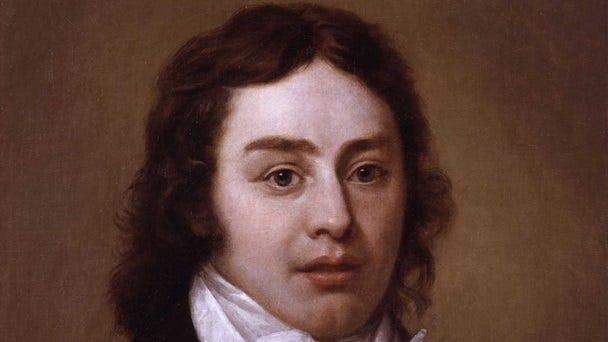
Kubla Khan
Or, a vision in a dream. A Fragment. In Xanadu did Kubla Khan A stately pleasure-dome decree: Where Alph, the sacred river, ran Through caverns measureless to man Down to a sunless sea. So twice five miles of fertile ground With walls and towers were girdled round; And there were gardens bright with sinuous rills, Where blossomed many an incense-bearing tree; And here were forests ancient as the hills, Enfolding sunny spots of greenery. But oh! that deep romantic chasm which slanted Down the green hill athwart a cedarn cover! A savage place! as holy and enchanted As e’er beneath a waning moon was haunted By woman wailing for her demon-lover! And from this chasm, with ceaseless turmoil seething, As if this earth in fast thick pants were breathing, A mighty fountain momently was forced: Amid whose swift half-intermitted burst Huge fragments vaulted like rebounding hail, Or chaffy grain beneath the thresher’s flail: And mid these dancing rocks at once and ever It flung up momently the sacred river. Five miles meandering with a mazy motion Through wood and dale the sacred river ran, Then reached the caverns measureless to man, And sank in tumult to a lifeless ocean; And ’mid this tumult Kubla heard from far Ancestral voices prophesying war! The shadow of the dome of pleasure Floated midway on the waves; Where was heard the mingled measure From the fountain and the caves. It was a miracle of rare device, A sunny pleasure-dome with caves of ice! A damsel with a dulcimer In a vision once I saw: It was an Abyssinian maid And on her dulcimer she played, Singing of Mount Abora. Could I revive within me Her symphony and song, To such a deep delight ’twould win me, That with music loud and long, I would build that dome in air, That sunny dome! those caves of ice! And all who heard should see them there, And all should cry, Beware! Beware! His flashing eyes, his floating hair! Weave a circle round him thrice, And close your eyes with holy dread For he on honey-dew hath fed, And drunk the milk of Paradise. This is a public episode. If you would like to discuss this with other subscribers or get access to bonus episodes, visit www.thepoemreader.com
02:5725/06/2022
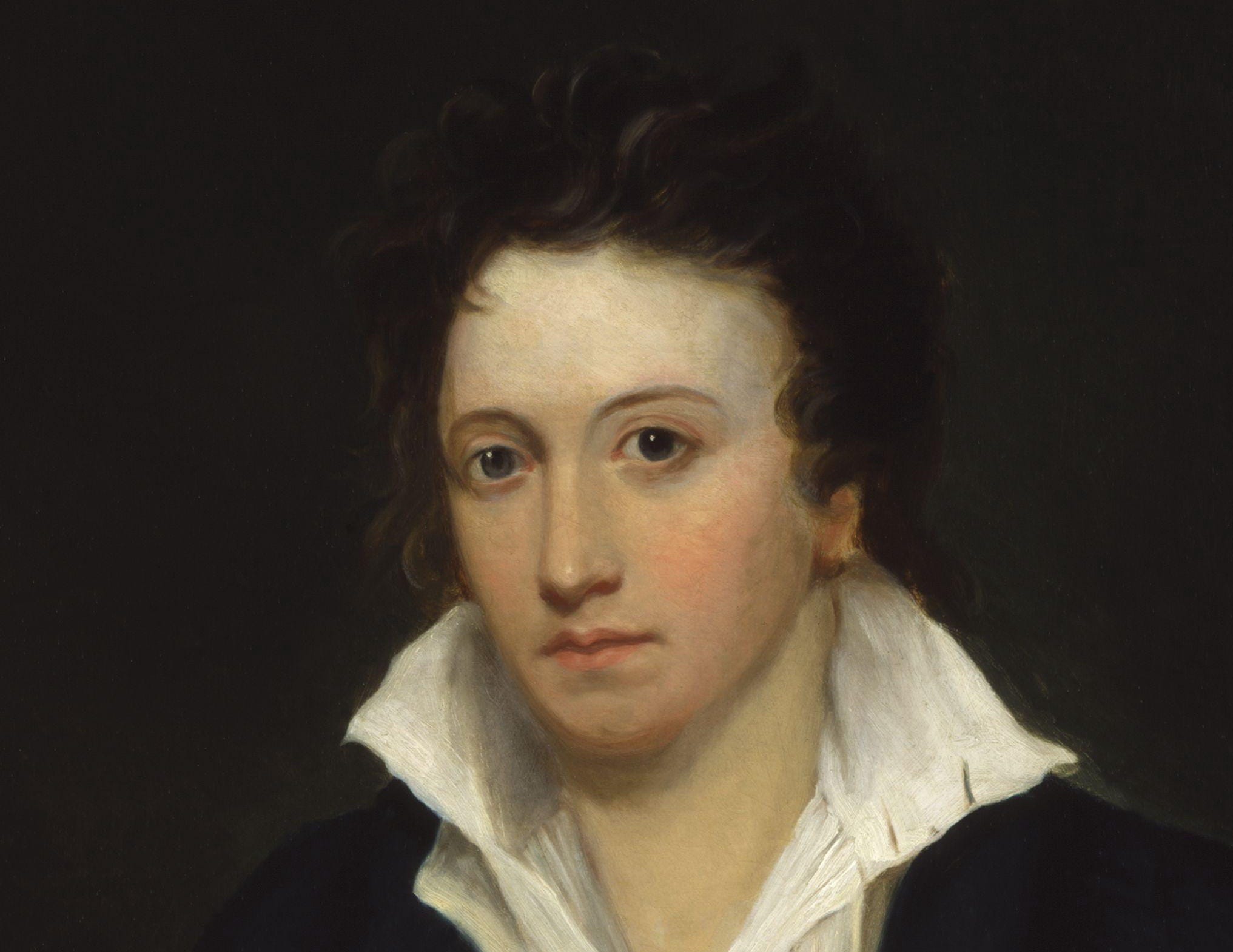
Ozymandias
I met a traveller from an antique land, Who said—“Two vast and trunkless legs of stone Stand in the desert. . . . Near them, on the sand, Half sunk a shattered visage lies, whose frown, And wrinkled lip, and sneer of cold command, Tell that its sculptor well those passions read Which yet survive, stamped on these lifeless things, The hand that mocked them, and the heart that fed; And on the pedestal, these words appear: My name is Ozymandias, King of Kings; Look on my Works, ye Mighty, and despair! Nothing beside remains. Round the decay Of that colossal Wreck, boundless and bare The lone and level sands stretch far away.” This is a public episode. If you would like to discuss this with other subscribers or get access to bonus episodes, visit www.thepoemreader.com
01:0318/06/2022
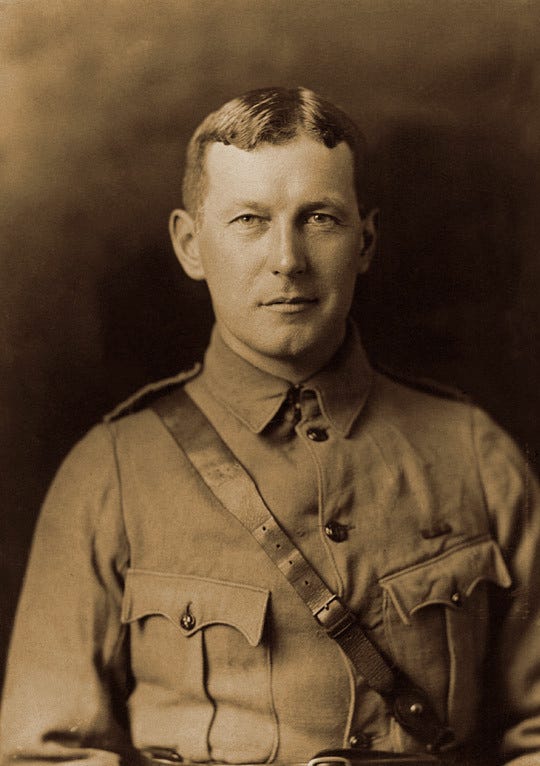
In Flanders Fields
In Flanders fields the poppies blow Between the crosses, row on row, That mark our place; and in the sky The larks, still bravely singing, fly Scarce heard amid the guns below. We are the Dead. Short days ago We lived, felt dawn, saw sunset glow, Loved and were loved, and now we lie, In Flanders fields. Take up our quarrel with the foe: To you from failing hands we throw The torch; be yours to hold it high. If ye break faith with us who die We shall not sleep, though poppies grow In Flanders fields. This is a public episode. If you would like to discuss this with other subscribers or get access to bonus episodes, visit www.thepoemreader.com
00:5311/06/2022
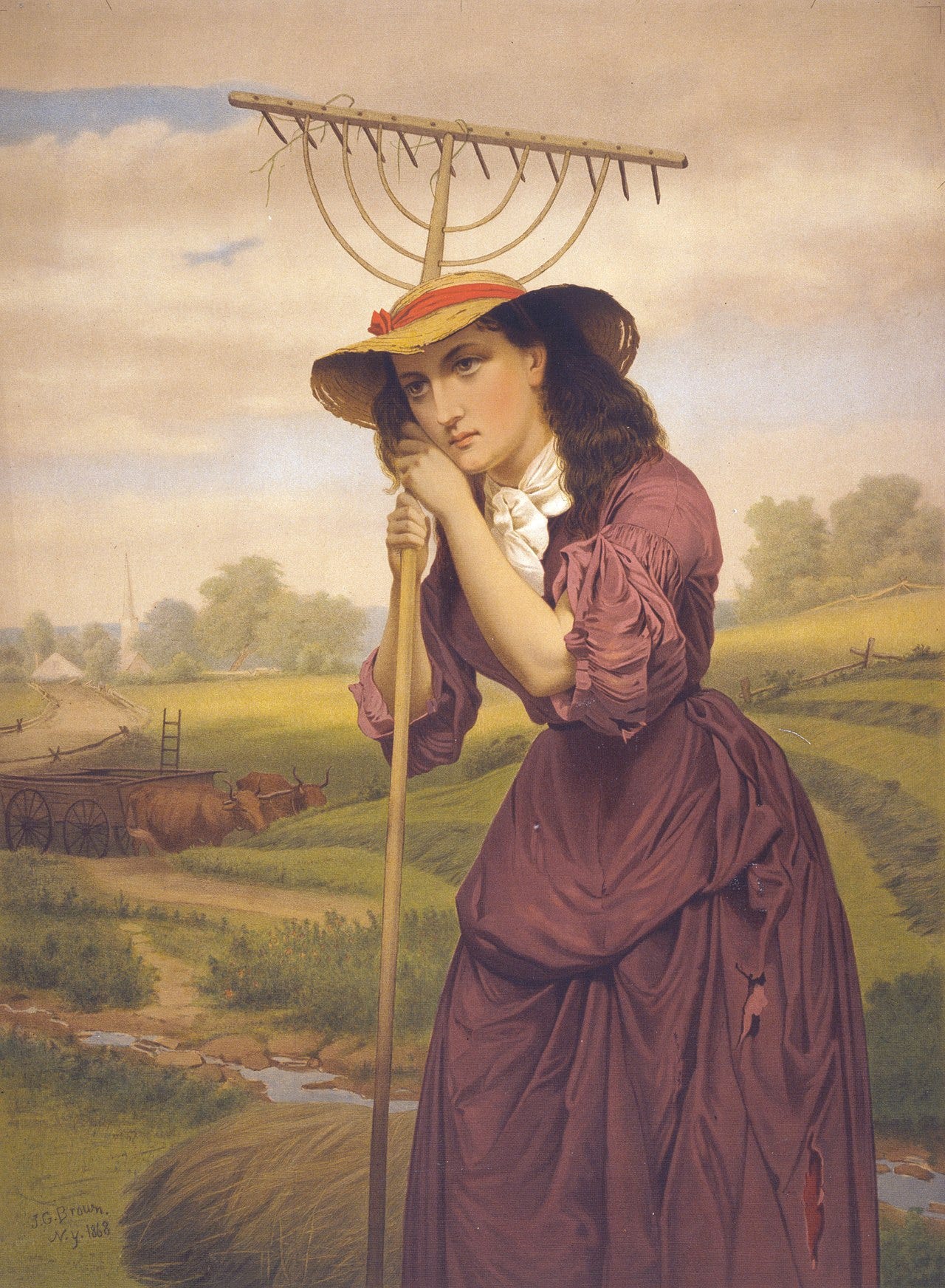
Maud Muller
Maud Muller, on a summer's day,Raked the meadows sweet with hay.Beneath her torn hat glowed the wealthOf simple beauty and rustic health.Singing, she wrought, and her merry gleeThe mock-bird echoed from his tree.But, when she glanced to the far-off town,White from its hill-slope looking down,The sweet song died, and a vague unrestAnd a nameless longing filled her breast--A wish, that she hardly dared to own,For something better than she had known.The Judge rode slowly down the lane,Smoothing his horse's chestnut mane.He drew his bridle in the shadeOf the apple-trees, to greet the maid,And ask a draught from the spring that flowedThrough the meadow across the road.She stooped where the cool spring bubbled up,And filled for him her small tin cup,And blushed as she gave it, looking downOn her feet so bare, and her tattered gown."Thanks!" said the Judge, "a sweeter draughtFrom a fairer hand was never quaffed."He spoke of the grass and flowers and trees,Of the singing birds and the humming bees;Then talked of the haying, and wondered whetherThe cloud in the west would bring foul weather.And Maud forgot her briar-torn gown,And her graceful ankles bare and brown;And listened, while a pleasant surpriseLooked from her long-lashed hazel eyes.At last, like one who for delaySeeks a vain excuse, he rode away,Maud Muller looked and sighed: "Ah, me!That I the Judge's bride might be!"He would dress me up in silks so fine,And praise and toast me at his wine."My father should wear a broadcloth coat;My brother should sail a painted boat."I'd dress my mother so grand and gay,And the baby should have a new toy each day."And I'd feed the hungry and clothe the poor,And all should bless me who left our door."The Judge looked back as he climbed the hill,And saw Maud Muller standing still."A form more fair, a face more sweet,Ne'er hath it been my lot to meet."And her modest answer and graceful airShow her wise and good as she is fair."Would she were mine, and I to-day,Like her, a harvester of hay:"No doubtful balance of rights and wrongs,Nor weary lawyers with endless tongues,"But low of cattle, and song of birds,And health, and quiet, and loving words."But he thought of his sisters, proud and cold,And his mother, vain of her rank and gold.So, closing his heart, the Judge rode on,And Maud was left in the field alone.But the lawyers smiled that afternoon,When he hummed in court an old love-tune;And the young girl mused beside the well,Till the rain on the unraked clover fell.He wedded a wife of richest dower,Who lived for fashion, as he for power.Yet oft, in his marble hearth's bright glow,He watched a picture come and go:And sweet Maud Muller's hazel eyesLooked out in their innocent surprise.Oft when the wine in his glass was red,He longed for the wayside well instead;And closed his eyes on his garnished rooms,To dream of meadows and clover-blooms.And the proud man sighed, with a secret pain,"Ah, that I were free again!"Free as when I rode that day,Where the barefoot maiden raked her hay."She wedded a man unlearned and poor,And many children played round her door.But care and sorrow, and child-birth pain,Left their traces on heart and brain.And oft, when the summer sun shone hotOn the new-mown hay in the meadow lot,And she heard the little spring brook fallOver the roadside, through the wall,In the shade of the apple-tree againShe saw a rider draw his rein,And, gazing down with timid grace,She felt his pleased eyes read her face.Sometimes her narrow kitchen wallsStretched away into stately halls;The weary wheel to a spinnet turned,The tallow candle an astral burned;And for him who sat by the chimney lug,Dozing and grumbling o'er pipe and mug,A manly form at her side she saw,And joy was duty and love was law.Then she took up her burden of life again,Saying only, "It might have been."Alas for maiden, alas for Judge,For rich repiner and household drudge!God pity them both! and pity us all,Who vainly the dreams of youth recall;For of all sad words of tongue or pen,The saddest are these: "It might have been!"Ah, well! for us all some sweet hope liesDeeply buried from human eyes;And, in the hereafter, angels mayRoll the stone from its grave away! This is a public episode. If you would like to discuss this with other subscribers or get access to bonus episodes, visit www.thepoemreader.com
06:1304/06/2022

This Be The Verse
They f**k you up, your mum and dad. They may not mean to, but they do. They fill you with the faults they had And add some extra, just for you. But they were fucked up in their turn By fools in old-style hats and coats, Who half the time were soppy-stern And half at one another’s throats. Man hands on misery to man. It deepens like a coastal shelf. Get out as early as you can, And don’t have any kids yourself. This is a public episode. If you would like to discuss this with other subscribers or get access to bonus episodes, visit www.thepoemreader.com
00:3828/05/2022
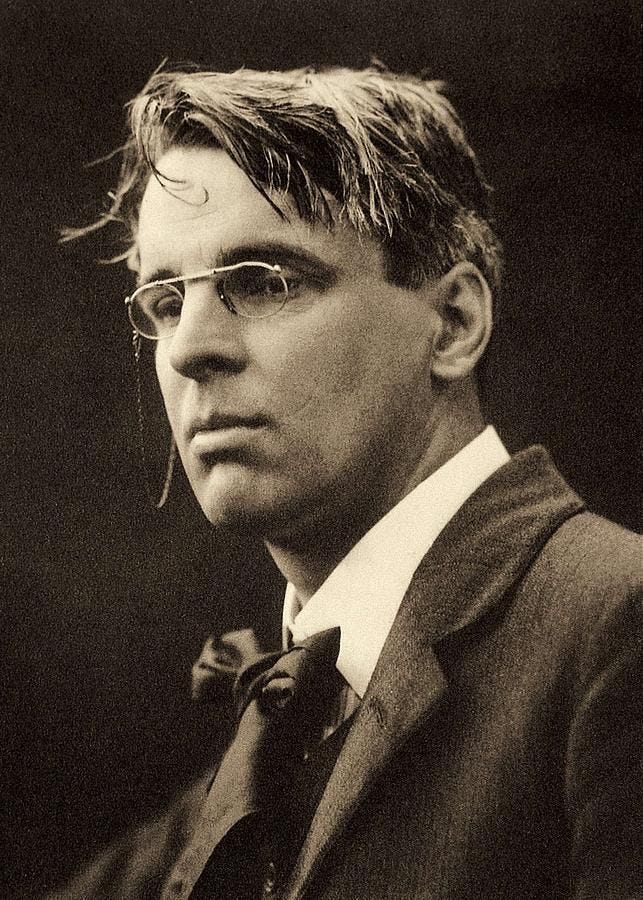
The Second Coming
Turning and turning in the widening gyreThe falcon cannot hear the falconer; Things fall apart; the centre cannot hold; Mere anarchy is loosed upon the world, The blood-dimmed tide is loosed, and everywhere The ceremony of innocence is drowned; The best lack all conviction, while the worst Are full of passionate intensity. Surely some revelation is at hand; Surely the Second Coming is at hand. The Second Coming! Hardly are those words out When a vast image out of Spiritus Mundi Troubles my sight: somewhere in sands of the desert A shape with lion body and the head of a man, A gaze blank and pitiless as the sun, Is moving its slow thighs, while all about it Reel shadows of the indignant desert birds. The darkness drops again; but now I know That twenty centuries of stony sleep Were vexed to nightmare by a rocking cradle, And what rough beast, its hour come round at last, Slouches towards Bethlehem to be born? This is a public episode. If you would like to discuss this with other subscribers or get access to bonus episodes, visit www.thepoemreader.com
01:1622/05/2022
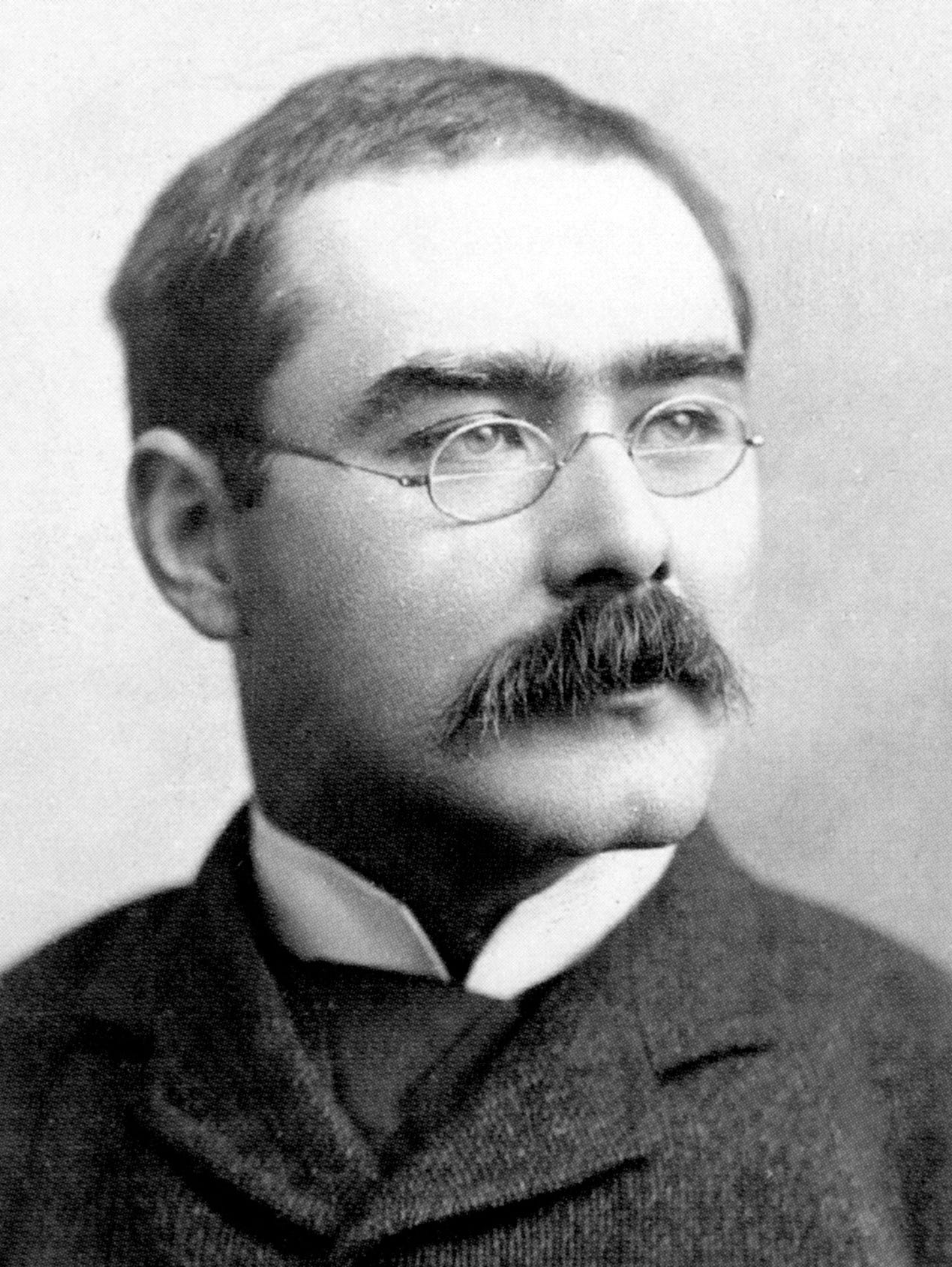
Danegeld A.D. 980-1016
It is always a temptation to an armed and agile nationTo call upon a neighbour and to say: --"We invaded you last night--we are quite prepared to fight,Unless you pay us cash to go away."And that is called asking for Dane-geld,And the people who ask it explainThat you've only to pay 'em the Dane-geldAnd then you'll get rid of the Dane!It is always a temptation for a rich and lazy nation,To puff and look important and to say: --"Though we know we should defeat you, we have not the time to meet you.We will therefore pay you cash to go away."And that is called paying the Dane-geld;But we've proved it again and again,That if once you have paid him the Dane-geldYou never get rid of the Dane.It is wrong to put temptation in the path of any nation,For fear they should succumb and go astray;So when you are requested to pay up or be molested,You will find it better policy to say: --"We never pay any-one Dane-geld,No matter how trifling the cost;For the end of that game is oppression and shame,And the nation that plays it is lost!"Rudyard Kipling, 1911 This is a public episode. If you would like to discuss this with other subscribers or get access to bonus episodes, visit www.thepoemreader.com
01:2916/05/2022





